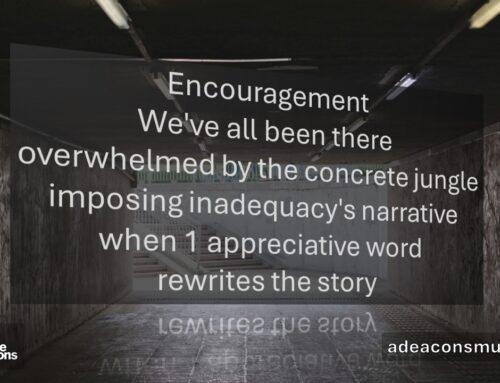I have been doing some thinking about this last Lenten blog for 2015. I have sincerely enjoyed exploring some of the traditional language and concepts for this season and attempting to find ways to translate them in a manner that might frame them as a practice and/or a discipline. Primarily, I thought this would be a helpful exercise for those for whom this season is unknown or those who might be exploring it for the first time or are trying to see it with new eyes.
I started these Lenten blogs with an exploration of using the metaphor of shadows and light to describe the season. After that I offered a few ways to understand the following traditions: Prayer as intention and Penance as forgiveness. Finally I tried to share Chris’ story as one way to connect them. In this blog, therefore, I thought I would go large or go home … so let’s try on sin for a challenge!
Sin – it’s perhaps one of the biggest trigger words that is connected to Christianity. It shuts down conversation, is instantly heard as judgement and often conjures images of fire, brimstone and creates a general sense of inherent badness that must be addressed by punishment. For the majority of most Canadians – for whom organised religion is not a way of life – the word simply reinforces assumptions about what it means to be a Christian. And – unfortunately – traditional media’s usual portrayal of Christian faith communities does not do much to dissuade that image.
I admit that it’s one of those words with such a rich history and depth that it is worth considering reclaiming. I also know that such an endeavour is merely an academic imagining: sin will never be accessible and it will certainly never be used to invite people to consider reflection and change, transformation and awakening as something that a discipline of faith might invite. Nope – it’s out with the sin … which becomes problematic for Christians during Lent as it’s a pretty traditional anchor to the season!
I think that might be a pretty great way to begin to appreciate Lent as a journey of difficult choices that possesses the potential to transform lives – mine and yours – when we realise that without a sense that we all are connected, we too easily fall down with no one willing to offer a hand … I’m not sure if this brief exploration has opened a door for you Reader, but I hope that it begins a process of your own questioning that might allow us to ask what our assumptions are when we experience language and words with which we feel discomfort. I don’t think sin is any longer (if ever it was) an invitation to begin a spiritual practice: perhaps the idea that we are all on a journey that longs for us to move from our individual challenges and brokenness toward a shared sense of holistic and integrated being might be worth considering …









Your reflections are most welcome!